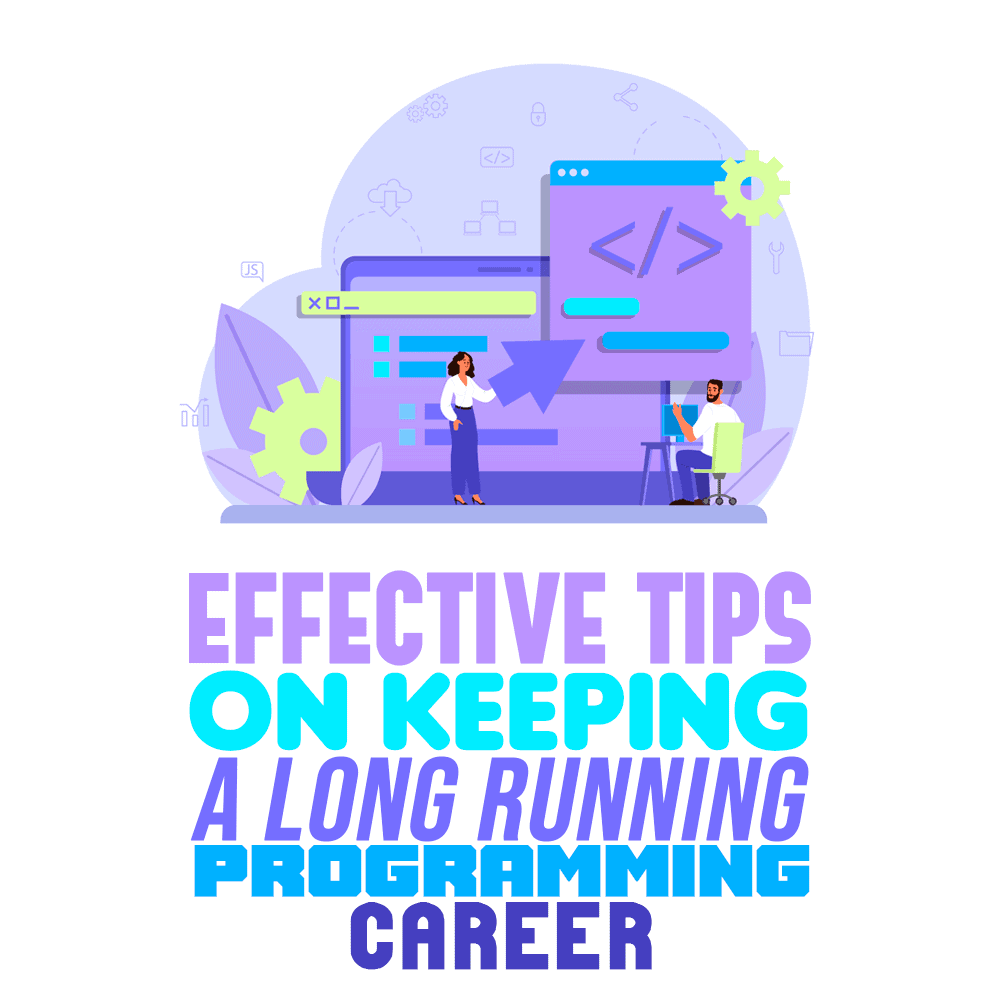 Every day we use dozens of applications on our smartphones and computers. As end users, we are concerned with their features and user-friendliness. If an application is considered too difficult to use or is full of bugs, we discard it immediately and move to an alternative.
Every day we use dozens of applications on our smartphones and computers. As end users, we are concerned with their features and user-friendliness. If an application is considered too difficult to use or is full of bugs, we discard it immediately and move to an alternative.
It is under these circumstances that developers work to produce captivating, solution-oriented, and user-friendly applications. Downloading an application may hardly take a minute, but for the programmer, it is countless hours of hard work.
Previously, programming jobs were limited to the IT industry. Other sectors had no use for programmers. But with recent leaps in technology and the birth of new business avenues, the world of IT has dramatically changed.
Today, nearly every organization has a dedicated IT department that is bustling with programmers and computer experts. The reason is simple. Just as we have come to rely on our gadgets for nearly everything, organizations have made a shift toward technology. Therefore, they demand such resources as a necessity.
Hence, programming as a profession has grown considerably over the years. There are innumerable job openings every day, and the demand keeps on increasing. However, choosing your career as a programmer does not guarantee success. The IT industry is growing at an unprecedented rate, and without the proper planning there is a potential risk that you may become obsolete in a matter of months or years.
If you are not up to date with new programming languages, and you are not continuously improving yourself, your career as a programmer may come to an abrupt end. In this article, I am going to give you the most effective tips for keeping a long-running programming career that is fun, progressive, and future-proof.
Get Professional Education
There are many “experts” who claim that professional education no longer holds value in the IT industry. While it is true that your skills present a great leverage over your professional degree, they may not always work in your favor. It is imperative to understand that a professional education degree carries a certain prestige and value which simply cannot be replaced by courses on Udemy, Coursera, or YouTube lectures.
Professional certifications give you the edge you need to validate your skill set and establish a footprint in the industry. Without credentials you may not be able to secure a job that rewards you based on your true potential.
For a moment, imagine yourself as an HR manager who is looking to hire an Android programmer. There are two promising candidates. They have the same skill set but one has a professional degree in software engineering and the other learned his trade from a friend or Coursera.
Which one would you hire?
Other things being equal, I would always go for the one with a professional degree. The reason is that they not only excel in practical skills but also have a great level of theoretical knowledge, which presents a sound proposition as an asset to the company.
Leading IT companies use recruitment software that identify resources based on specific metrics, and one of them is educational background. Without a professional you may not even get noticed by these tech companies.
Therefore, if you are looking to work as a programmer, investing in professional education is a must. Get a degree, do specialization, opt for professional certifications like CCNA, AGILE, and others. This will always help you get an edge over others in your field
Keep Yourself Busy Learning New Technologies
Programmers are no longer confined to the basements or corner offices where they can work in silence while they sip on coffee, furiously tapping their keyboards. The traditional work environment has evolved significantly, and so has the nature of work for programmers.
Previously, a programmer had to write 100 lines of code just to display a single button on the application or website. Today, technology has made it possible for programmers to select ready-made templates and adjust them according to their requirements. Because of this, you no longer need to write 100 lines of code.
Consider WordPress, a famous content management system used for making websites. Even people with no knowledge in programming can use it to create websites. This is how far technology has come.
As a programmer, it’s best to play it safe and smart. For example, leading e-commerce platforms such as Magento require a different set of knowledge. You need to know which platform is more popular in which region to get the best value for your effort.

For example, the Middle East has a huge demand for Magento, and their e-commerce market reached $18.5 billion in 2019. This means that if you want to succeed in the Middle East, you must opt for the latest technologies that are in demand over there.
Similarly, if there is a programming skill that is highly in-demand in the U.S., you must make yourself adept at it. Keeping watch for regional preferences is the key to succeeding in your programming career.
This not only allows you to become market-ready, but it also helps you remain competitive.
Never Let Yourself Stagnate in One Place
A toxic workplace or an ungrateful boss are not situations where you should be spending your time. Instead, believe in yourself. Apply elsewhere and quit the job the first chance you get.
Many new entrants in the IT sector struggle with job environments and remain deprived of professional guidance on how to grow their career and step forward. Static jobs can take a serious toll on a programmer’s professional career by detrimenting the growth they need to excel further.
Toxic workplaces or an ungrateful boss will only pull you down. They prevent you from realizing your worth and the potential to excel further. Your dreams and aspirations are put on hold while you are confined to the basement office to do “work” which might not even match your job description.
Changing jobs frequently until you find the right one is not a sign of commitment issues. It’s a sign that you continuously want new challenges in life.
Use Paid Tools to Get the Best Value
Let’s assume that you are a top freelancer and there is a new client in town. Everyone is looking to get their project. You have tons of experience and are confident of closing the client, but to your surprise, a person with very little experience ends up getting the job. Trust me, this is more common than you think.
Today, clients work with people who have skills and show commitment. One way to show commitment is to invest in paid tools. Such tools not only improve the quality of the work but also help convince the clients that you are a highly committed individual who is willing to go the extra mile. It is not just the clients that you can impress with paid tools. You can also use such tools to improve your work and move toward the growth phase of establishing your own IT firm. Corporate clients who need a robust online footprint are often inclined to hire e-commerce development agencies over freelance developers.
Maintain a Good Sense of Discipline in Work
Whether it’s a freelance gig or a 9-to-5 job, maintaining a good sense of discipline in work is the key to success. If you are not sincere to your work, you will surely face an issue sooner than you would like to expect.
Lack of discipline leads to several major complications in your professional career as a programmer. Without due commitment and good faith in yourself, you simply cannot expect to succeed in the IT sector, where competition is always high.
The manager or top bosses can identify a committed, hardworking resource from a lazy one. Likewise, a missed delivery or milestone in the freelancing world is enough to get you a bad review. One bad review on your profile will surely cost you your reputation and future work.
Therefore, stay committed to your work. If you feel that you are unable to do so, I suggest taking a break. Use this time to think about your future course of action.
Never Let Failure Get the Best of You
Failure is part of life. Instead of running away from it, accept and learn from it. It will help you improve professionally and on a personal level. I have seen so many people switch their careers because of one failure. In my opinion, giving up will only worsen the blow on you. Instead reflect on what you did wrong and do not make the same mistake again.
A friend of mine once failed to complete a freelance project on time. Naturally, the client left a bad review. After that, new clients became hard to come by. She became frustrated with herself, doubted her abilities, and finally decided to change her career.

Failure doesn’t have to be the end. You can embrace it, learn from it, and use it to your professional advantage.
Invest in Yourself
Don’t be complacent. Use your time wisely and learn new skills. Invest in new technologies and tools, and try to establish your own network. This network will be useful for getting back on your feet if things don’t work out in your job, freelance career, or your own setup.
The six tips I have listed above will surely help you become a better programmer and have a successful, lasting career.
